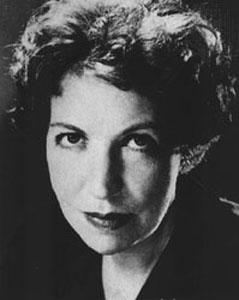A Quote by Joseph Brodsky
There is nothing odder than to apply an analytical device to a synthetic phenomenon: for instance, to write in English about a Russian poet.
Related Quotes
I love thinking about things subtextually and I actually - like for instance when I write, I actually, I'm not very analytical about it. I don't ever deal with the subtext because I just know it's there so I don't have to deal with it. I just keep it about the scenario. I keep it on the surface, on my concerns. And one of the fun things is is when I'm done with everything, like now, for instance.
There are reviews that are clearly wrong. Dr. Johnson's famous Life of Savage, he's clearly wrong about the value of Savage. But it's one of the great works in English literature. You can learn more about the artistic expression and what the poet does and how to write about art from that than any number of guys who are terrible writers, who have no original ideas, but who say yes, "Hamlet" is a wonderful play. It's a meaningless statement.
It is one thing to write as poet and another to write as a historian: the poet can recount or sing about things not as they were, but as they should have been, and the historian must write about them not as they should have been, but as they were, without adding or subtracting anything from the truth.
There's a lot of material from my life in my books, but they're not really autobiographical, in the sense that they're not about my life. So, in 'A Feather on the Breath of God' I write about my parents, I write about this Russian immigrant, I write about the world of dance, but it isn't an autobiography; so much is left out.
My best songs were written very quickly. Just about as much time as it takes to write it down is about as long as it takes to write it...In writing songs I've learned as much from Cezanne as I have from Woody Guthrie...It's not me, it's the songs. I'm just the postman, I deliver the songs...I consider myself a poet first and a musician second. I live like a poet and I'll die like a poet.





































